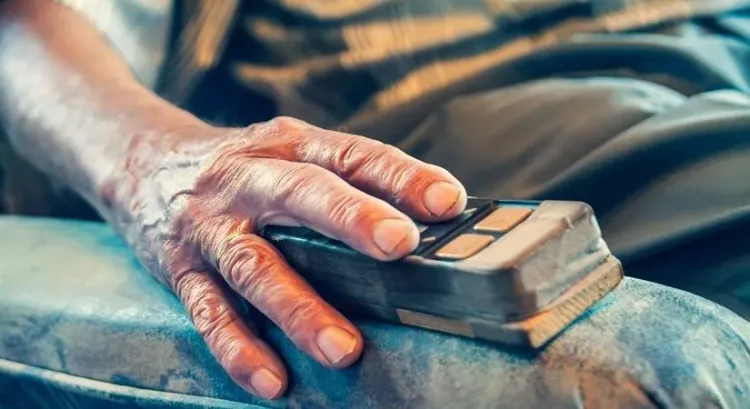AI Can Determine True Biological Age from Just 5 Blood Drops

Synopsis
Key Takeaways
- AI model developed at Osaka University
- Estimates biological age using just five drops of blood
- Analyzes 22 key steroids for health assessment
- Potential for personalized health management
- Chronic stress impacts biological aging
New Delhi, March 16 (NationPress) Researchers at Osaka University in Japan have developed an innovative AI model to assess an individual's biological age — a reflection of how effectively their body has aged, rather than merely counting the years since their birth.
By utilizing only five drops of blood, this pioneering technique examines 22 essential steroids and their interactions to deliver a more accurate health evaluation.
The team's groundbreaking research, published in Science Advances, signifies a promising advancement in personalized health management, enabling earlier identification of age-related health hazards and personalized interventions.
“Our bodies depend on hormones to sustain homeostasis, so we wondered why not use these as primary indicators of aging?” stated Dr Qiuyi Wang, co-first author of the study.
To validate this concept, the research team concentrated on steroid hormones, which are vital in metabolism, immune response, and stress management.
The team created a deep neural network (DNN) model that incorporates steroid metabolism pathways, making it the first AI model to specifically consider the interactions among various steroid molecules.
One of the most remarkable findings of the study pertains to cortisol, a steroid hormone typically linked with stress. The researchers discovered that when cortisol levels doubled, biological age surged by approximately 1.5 times.
This indicates that chronic stress may speed up aging at a biochemical level, highlighting the significance of stress management in preserving long-term health.
“Stress is frequently talked about in broad terms, but our results provide tangible proof that it has a measurable effect on biological aging,” remarked Professor Toshifumi Takao, a corresponding author and an authority in analytical chemistry and mass spectrometry.
The researchers are optimistic that this AI-driven biological age model could lead to enhanced personalized health tracking.
Potential future uses may encompass early disease identification, tailored wellness programs, and even lifestyle suggestions aimed at decelerating aging.








